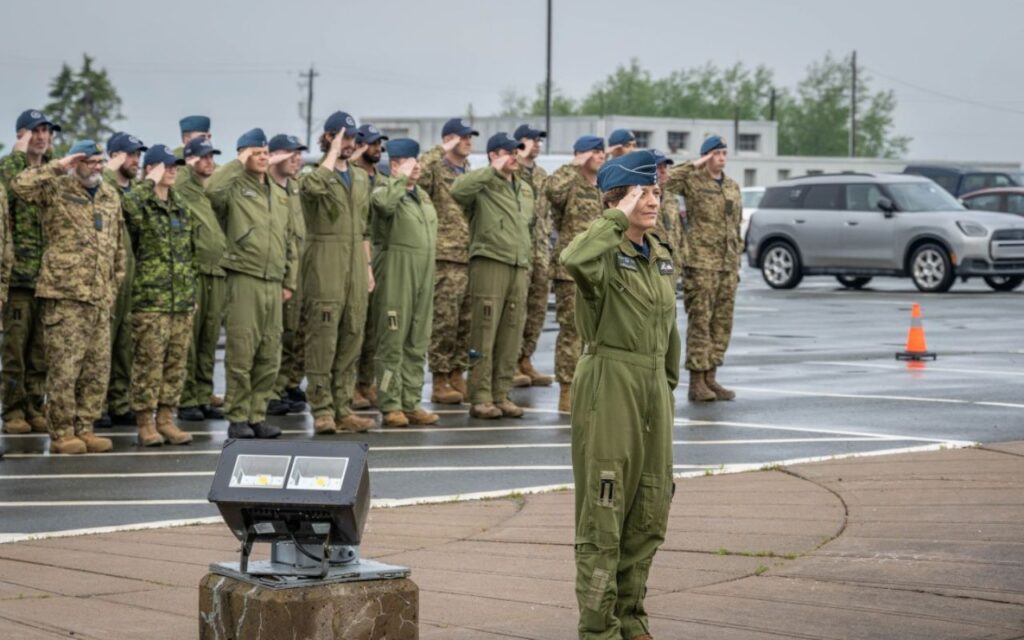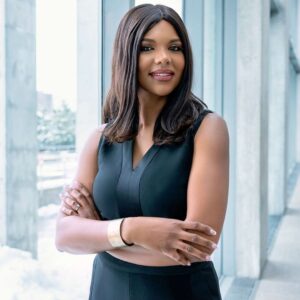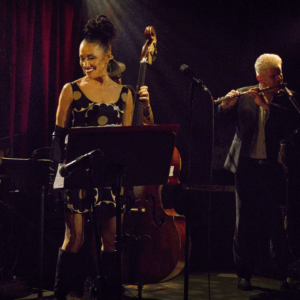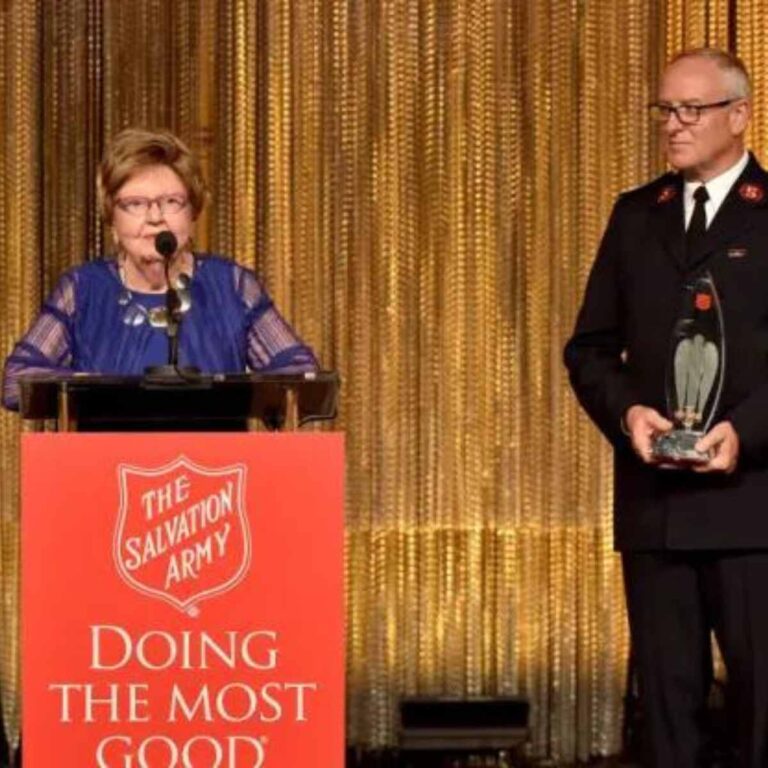Lieutenant-General Lise Bourgon reflects on a career of firsts in the Canadian Armed Forces
Today’s guest is the kind of woman who doesn’t just break glass ceilings – she crushes them under her combat boots. Lieutenant-General Lise Bourgon is a trailblazer in uniform, and was one of the highest-ranking women in the Canadian Armed Forces.
She is a true pioneer, and her career is a testament to discipline, resilience, and the power of purposeful leadership. She has spent her life breaking barriers and opening doors for the next generation of women in service – and beyond, and we are so excited she was able to join us on this episode of The Honest Talk podcast!

Catherine Clark: I want to start at the beginning, because it’s not a natural career choice for a lot of young women to say, “You know what, I’m going to join the military.” What inspired you to join, especially at a time when you probably didn’t see a lot of women in senior roles?
Lise Bourgon: That’s a really interesting question. I joined the military because I wanted to go to university, and my parents would not have been able to afford to send me. When I did my research, I found the Royal Military College Saint-Jean, which was a military university where you could get a degree, get paid while studying, and then serve obligatory time afterward before quitting if you wanted to.
That was my intent. I had no family in the military and no desire to serve. But I went to military college, got my degree, and became a pilot. After that, I fell in love with what I was doing – and 38 years later, here we are.
Jennifer Stewart: General, was there a point when you realized, “This isn’t just five years to pay for school – this is a career in public service”?
Lise Bourgon: Yes, it’s interesting. I ended up flying Sea Kings, and really, it was when I sailed on a ship and flew the Sea King that I fell in love with my occupation. At that point, I thought, “Okay, this isn’t going to be that bad.” I decided to keep my options open, going from posting to posting, thinking that when I’d had enough, I would quit. But it never happened. It’s been an awesome career.
Catherine Clark: What about becoming a pilot? That seems out of left field too. You hadn’t grown up thinking you’d join the military, so I imagine you hadn’t grown up thinking you’d become a pilot either. How did that happen?
Lise Bourgon: Absolutely. I joined at a time when occupations were just being opened to women, and of course, they wanted as many women as possible to try out for pilot. Pilot was actually my third choice – my first was military police, my second was logistics. They asked, “What about pilot?” and I said, “Okay, we’ll give it a try.”
I think that’s the only reason I became a pilot – I didn’t care that much at the time. I actually thought flying had too many rules, which is why I chose helicopters: there are fewer rules flying helicopters than fixed-wing aircraft. I wasn’t nervous or stressed in training, which really helped. Some of my friends had grown up dreaming of being pilots, but the stress was too much and they didn’t make it. For me, it was more of a “que sera, sera” attitude. If I made it, great; if not, I’d become an MP or go into logistics.
It worked out – and sometimes, as the Garth Brooks song says, “Some of God’s greatest gifts are unanswered prayers.”
Jennifer Stewart: You’ve said you didn’t really like the rules, but you ended up in a very regimented profession where rules are everywhere. How did you reconcile that? Were you always breaking them?
Lise Bourgon: Well, maybe I broke a few rules – but never the important ones! For me, it was mostly about flying. In training, for example, we had to fly at 1,200 feet and 70 knots on a clear blue-sky day, and I’d think, “Come on, it’s a blue sky – who cares?”
But that’s the training environment. Helicopters, by their nature, can land almost anywhere, and we mostly fly visual flight rules, so it’s not as rigid as fixed-wing. There’s more freedom in helicopter flying, and that’s what attracted me to that field.
Catherine Clark: Early in your career, you faced challenges as a female pilot – things like flight suits that didn’t fit, or needing to adapt in situations because of your size and gender. I remember seeing a clip where you mentioned the Sea King helicopter, which was designed decades ago, actually allowed you to move the seat forward – maybe even the pedals – so that someone of a smaller frame could fly it. How did those kinds of situations make you feel? And how did you cope with having to adapt because of your size and gender?
Lise Bourgon: Flexibility and a sense of humor. When I joined the military, it was designed by men, for men. For the first 30 years of my career, we had to adjust because it simply wasn’t designed for women. We used creativity – like you saw with the Sea King, where even going to the washroom was nearly impossible, or with uniforms that barely fit. In those early years, I coped by almost denying that I was a woman. I didn’t refer to myself as a woman or as a man – I was just me. And that’s how many of us got through it.
Jennifer Stewart: You’ve reached the highest ranks in the Canadian Armed Forces. Was there a moment when you realized your path might lead there?
Lise Bourgon: I’m not sure there was one defining moment. But in 2021, during a leadership crisis, the Canadian Armed Forces reached a turning point on inclusion and diversity. That was when senior leadership looked around and said, “Okay, who doesn’t look like us? Let’s bring them in, because we need to change.” That created an opportunity for me to become a three-star and to focus on inclusion.
Catherine Clark: Was that difficult? On one hand, you had a fairly public crisis. On the other, the whole world was also wrestling with these same conversations. But you also had lived experience–decades of adapting within this system. In many ways, you were the best person to lead that change. Can you talk about that?
Lise Bourgon: Absolutely. In 2021, I also had the chance to spend a year at Queen’s University at the Centre for International Defence and Policy, where I researched inclusion in the military. I looked at my own career and lived experience to identify the gaps. Then the crisis hit, and I got a call: “We need you in Ottawa.” I told the Chief of Defence Staff that if I was coming back, I wanted to serve as Chief of Military Personnel – because that’s where I felt I could make the biggest impact on inclusion policies. He agreed, and I stepped into that role with a long list of changes we needed to make.
Women had been integrated into the Forces since the 1980s, but integration is not the same as inclusion. My goal was to move us toward true inclusion – so women, mothers, wives could bring their full selves to work in uniform.
Jennifer Stewart: Is there one change you identified and led that you’re most proud of?
Lise Bourgon: Honestly, there are many. I became the Champion for Women in the Canadian Armed Forces, and we tackled issues across multiple layers: health services, uniforms, HR policies, daycare, succession planning, even how we assess people. There were still systemic barriers.
Over four years, we made progress I’m really proud of. We developed a new women’s health strategy to meet women’s needs. We updated uniforms and dress policy – making them less restrictive and more inclusive, including maternity wear. These changes may sound small, but together they’ve made a big difference.
Catherine Clark: You’ve talked about how some policies have shifted for women. You’ve also built a truly successful career in the military – while raising a family. That’s something women in many sectors do, but in your case, military life comes with frequent moves and a lot of upheaval. How have you balanced your family’s needs with your own career?
Lise Bourgon: I’ve had the great luck of having an absolutely supportive husband. I would not be where I am without him. He allowed me to be who I am today, and he took on more than half of the responsibility at home. I also had great kids who were adaptable – the flower of military kids is the dandelion, because they grow roots anywhere.
That said, it wasn’t easy. Work–life balance never is. My coping mechanism was learning to accept good enough instead of always trying to be the best at everything. Women can be so hard on themselves – they want to be the best at work, the best mothers, the best spouses, even staying up baking a cake at 3 a.m. For me, it was about not sweating the small stuff. If I couldn’t give a lot of quantity time, I made sure the time I did have with my family was quality. And honestly, my kids tell me they didn’t feel like they missed me too much – so I must have done something right.
Jennifer Stewart: That’s pretty amazing. What practices or beliefs have helped you stay grounded and resilient during the toughest moments of your career?
Lise Bourgon: Sleep. For me, sleep is absolutely vital. If I don’t get at least seven hours, I become a person I don’t like – honestly, a monster. So I’ve always respected that need. And exercise has been essential too. Getting to the gym helped me switch my brain off and stay resilient. My team quickly learned to protect my time until 8:30 a.m. so I could make the 7 a.m. class. By 4:30 in the afternoon, if I’d been to the gym, my spirit was still good. If I hadn’t, I wasn’t as nice a leader. So, protect your boss’s gym time!
Jennifer Stewart: What would you tell a young Canadian woman who is considering a career in the military today?
Lise Bourgon: I’d say: give it a shot. The opportunities are incredible – 108 different occupations, free education, free training, and an exceptional way of life. You get the chance to make a difference for Canadians and abroad, and the variety of roles is what I loved most. You rarely stay in one job for more than two or three years, so it’s always changing and always fun.
The military today is very different from when I joined in 1987. We’ve made exceptional progress, especially around inclusion and valuing diversity. And the thing is, it doesn’t have to be a lifelong commitment. You can serve five years, or ten years – but try it. I think you’ll be surprised at how much fun it is, and how much it benefits you.









